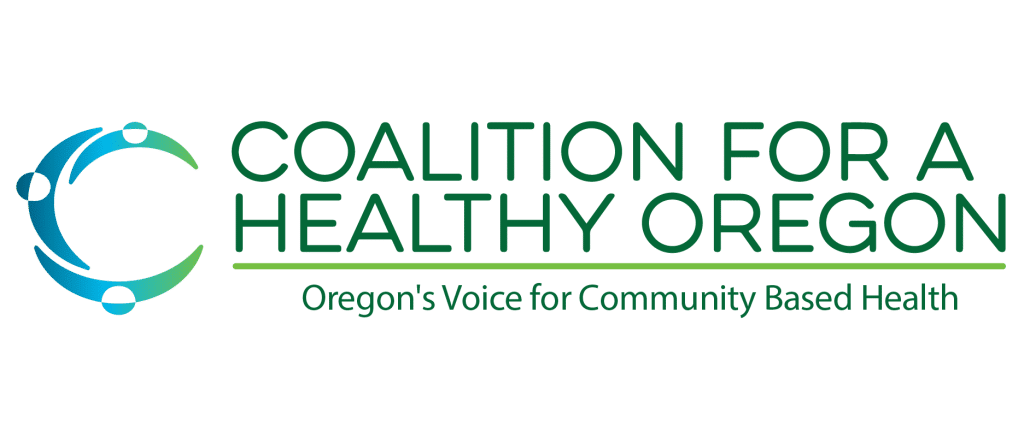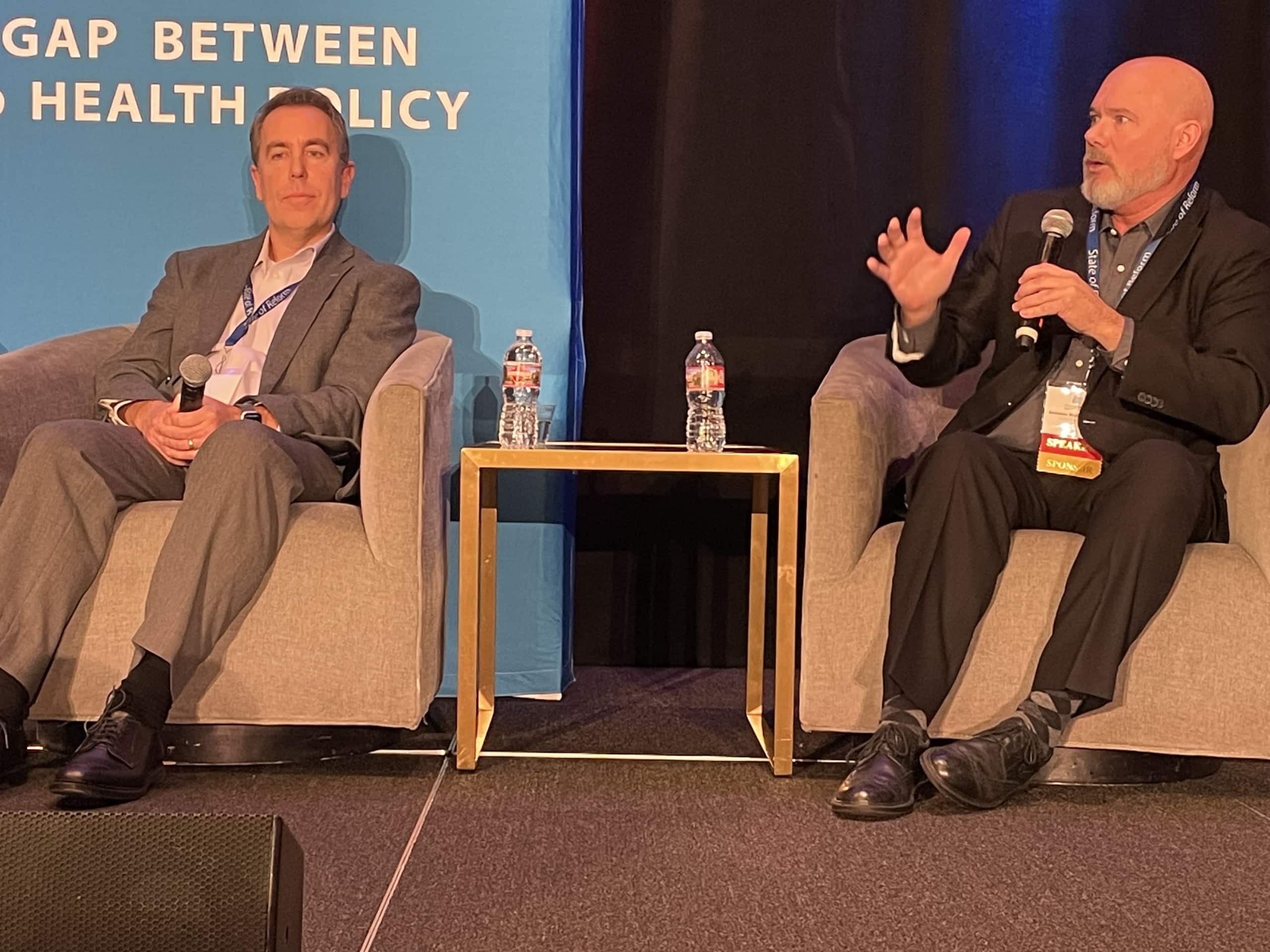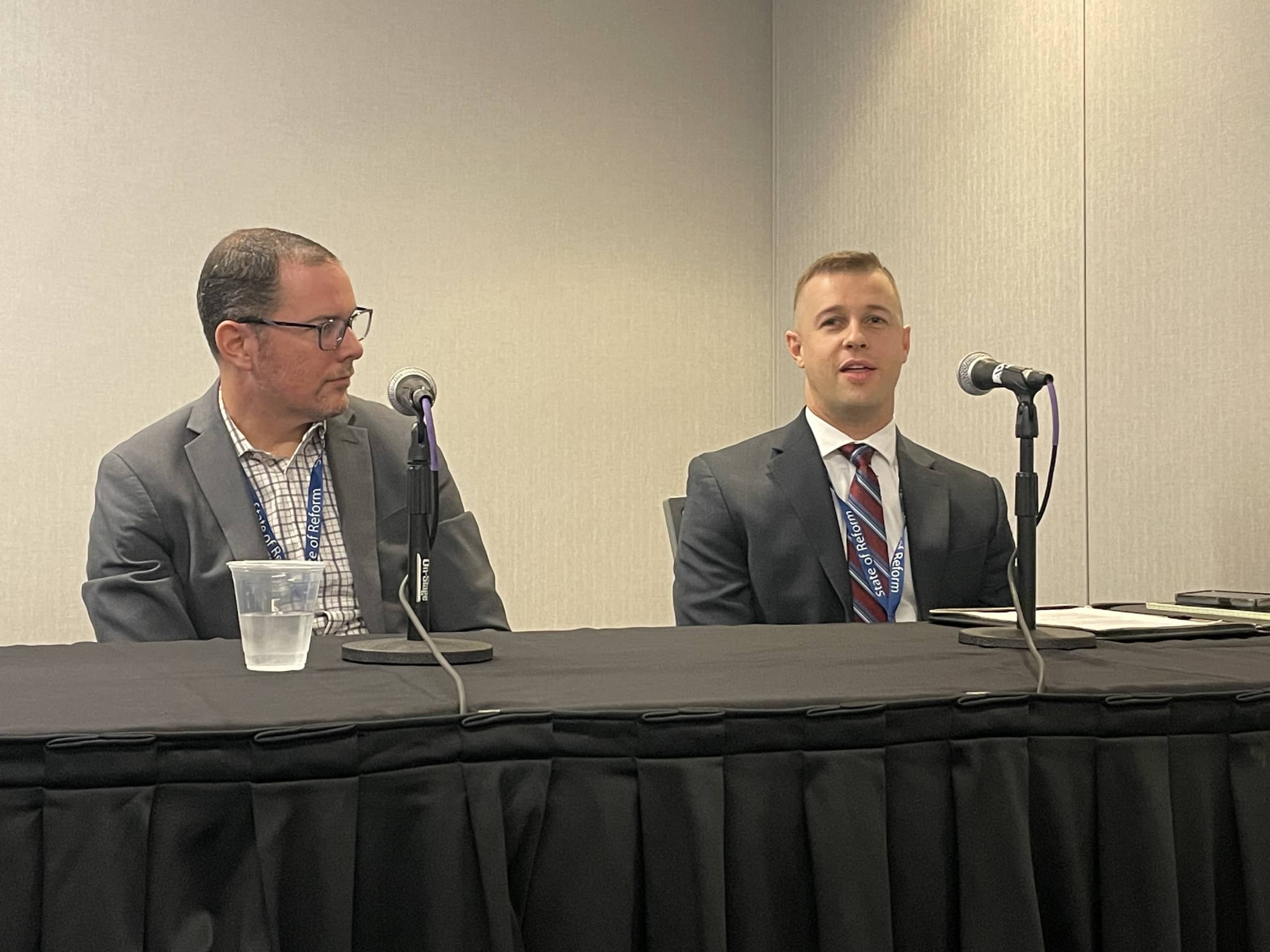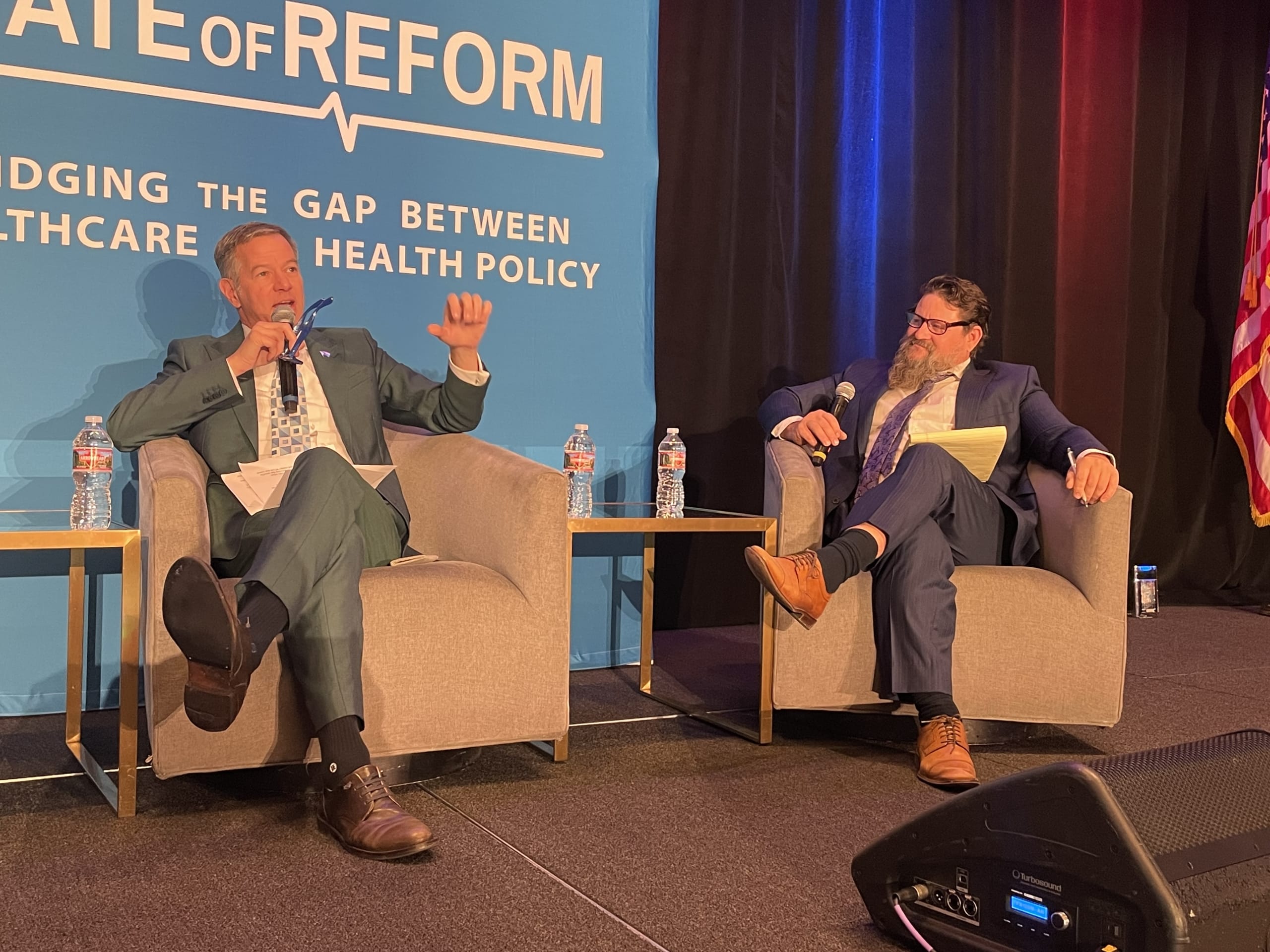Oregon CCOs Look Ahead to 2025 and Beyond
After 12 years of creating a better health care experience for Oregonians — including better access, better outcomes, and lower costs — Seamus McCarthy can say with confidence that the state’s coordinated care (CCO) model has been nothing short of a success.
The key heading into 2025 and beyond is to continue building on those successes, said McCarthy, president and CEO of Yahmhill Community Care. He offered his vision for CCOs as part of a panel at the State of Reform Health Policy Conference in Portland in late November.
“First, health-related social needs is the new Medicaid benefit that we just started up here this year,” McCarthy said. “It’s a groundbreaking new benefit and we are still learning how best to administer, but it is very promising because it’s all about social determinants of health.”
Max Janasik, left, CEO of AllCare Health, and Seamus McCarthy, CEO of Yamhill Community Care, speak at the State of Reform Health Policy Conference in November.
Health-Related Social Needs
Health-related social needs (HRSN) include social and economic factors that can affect someone’s health, such as housing, climate, and nutrition.
In 2024, CCOs added benefits for qualifying members toward housing and climate supports (things like portable air conditioners, heaters, and mini-refrigerators to keep medications cold during a power outage). Nutrition supports are coming in January 2025.
With the next round of CCO procurement underway, McCarthy said there is ample opportunity to boost investments in social determinants of health as a means to lower costs and make communities healthier.
“Those are areas that I think we can focus on taking our model to the next level,” McCarthy said. “Let’s get ahead of the game instead of behind the game.”
Max Janasik, CEO of AllCare Health, agreed that CCOs should focus more on investing upstream in healthier communities, rather than simply responding to crises. He said AllCare is looking to strengthen the economic well-being of families in the communities they serve.
“We show on a regular basis that we’re able to address these problems and that we can meet people where they are,” Janasik said.
Legislative Priorities
Early childhood and maternal care are major focuses of the “Momnibus” bill, which will be introduced in the 2025 legislative session by Sen. Lisa Reynolds (D-Beaverton).
Reynolds, a pediatrician and Democrat representing northeast Washington County, has outlined four main pillars of the bill, including:
- Providing stable housing during pregnancy and 12 months postpartum.
- Improving outcomes for maternal mental health and substance use disorder.
- Reducing poverty for pregnant and postpartum people.
- Expanding the perinatal workforce, including doulas, community health workers, peer support, behavioral health workers, and lactation specialists.
Dan Cushing, government affairs director for Yamhill Community Care, announced a CCO-version of Momnibus, which Senator Reynolds is sponsoring as part of a suite of maternal health and early childhood bills 2025 session. The legislation includes 10-year contracts for CCOs, which Cushing said will allow for greater continuity and long-term investments for members.
Dan Cushing, right, government affairs director for Yamhill Community Care, discusses legislative priorities at the State of Reform Health Policy Conference in November.
“We’ve worked with Senator Reynolds as well as the Children’s Institute and many others to put forward a package with CCO-specific ideas of how we can make Oregon the best place to carry pregnancy and to be raising a family,” Cushing said. “Those investments are crucial to the long-term success of that individual.”
As for 10-year contracts, McCarthy explained it is important for communities to know their CCOs will be around to see through long-term projects and investments.
“The last thing our communities need from us is uncertainty,” McCarthy said. “Our local communities need to know that we, as coordinated care organizations serving 30% of our population and as a state, have their backs on health care.”
Lawmakers Share Perspectives
Rep. Rob Nosse (D-Portland), chair of the House Interim Committee on Behavioral Health and Health Care; and Sen. Cedric Hayden (R-Fall Creek), vice chair of the Senate Interim Committee on Health Care, also shared their thoughts on what to expect from lawmakers.
Oregon Rep. Rob Nosse (D-Portland), left, and Sen. Cedric Hayden (R-Fall Creek) gave the opening plenary at the State of Reform Health Policy Conference in November.
Nosse said most of his focus will be ensuring that CCO providers are paid adequately.
“I believe we’ll have bills that check in on the Medicaid model that we have, what they are doing, and what we can do to help them better deliver the Medicaid program in our state,” Nosse said.
Hayden said the CCO model needs to continue innovating, particularly on increasing access to care. He said his office has already reached out to Robert F. Kennedy Jr., who has been nominated by President-elect Donald Trump to lead the Department of Health and Human Services.
“We want to talk with them and showcase what Oregon has done,” Hayden said. “We think we might have the opportunity to do that.”





